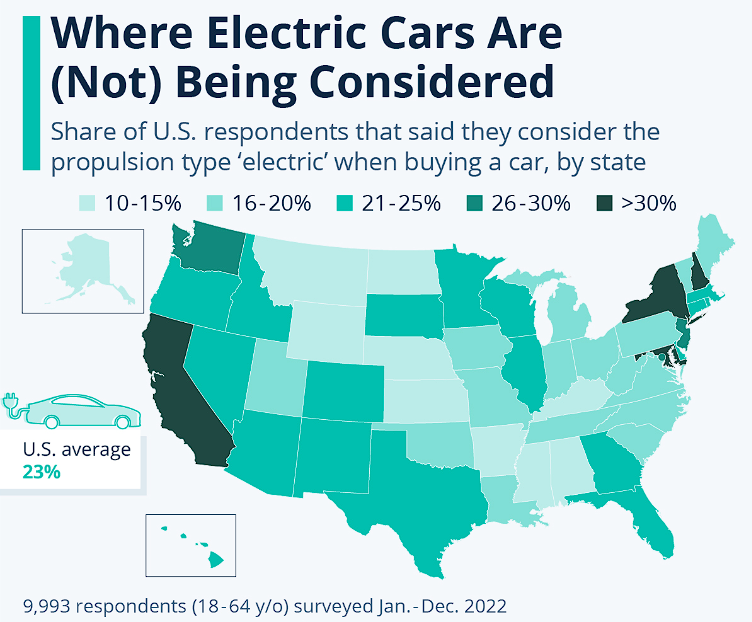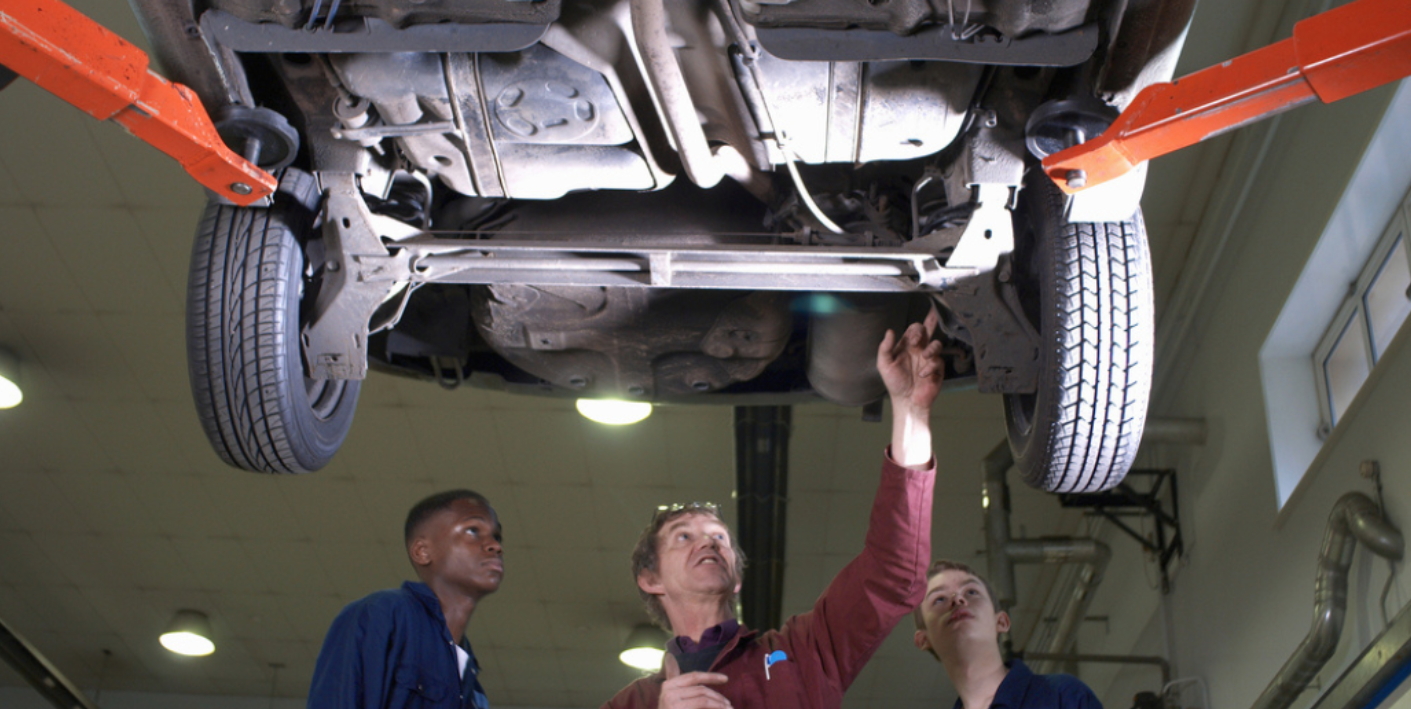The Uneven Adoption of Electric Cars in the US (PDF)
The rise of electric cars has been a hot topic in the United States for several years now, with policymakers, automakers, and environmentalists alike touting the benefits of EVs over traditional gasoline-powered vehicles. However, the reality is that the adoption and acceptance of electric cars have been uneven across the country. While some states have embraced EVs as the future of transportation, others are still skeptical about their feasibility and practicality.
According to data from the Statista Consumer Insights survey, California is the leading state in the adoption of electric cars. Over 30 percent of respondents in the state consider electric propulsion when buying a car, indicating a high level of acceptance and openness to EVs. California is also home to some of the country’s most generous incentives and policies for electric vehicles, including rebates and tax credits for purchases, HOV lane access, and charging infrastructure.
New York, Maryland, and New Hampshire also have more than 30 percent of respondents keeping EVs in mind when purchasing a car, indicating strong interest in electric propulsion. New York is home to some of the largest EV incentives in the country, including rebates of up to $2,000 for electric car buyers and a goal of deploying 10,000 public charging stations statewide. Maryland also offers tax credits of up to $3,000 for electric vehicle purchases.
However, not all states are embracing electric cars with the same enthusiasm. States like North Dakota, Kentucky, and Alaska showed relatively little interest in adopting EVs as a viable transportation option. Less than 15 percent of respondents in North Dakota and in Kentucky considered electric propulsion when buying a car, indicating a significant gap in acceptance compared to states like California and New York.

Factors influencing the adoption of electric cars
The reasons for these disparities in EV adoption are varied and complex, but they are often linked to factors such as state policies and incentives, consumer attitudes and preferences, and the availability of charging infrastructure. States with generous incentives for EVs and strong policies promoting their adoption tend to have higher rates of acceptance, while states with fewer incentives and less infrastructure often lag behind.
In conclusion, the uneven adoption and acceptance of electric cars across the United States highlight the need for continued efforts to promote and incentivize EVs at the state and federal levels. As electric cars become increasingly affordable and accessible, policymakers and automakers must work together to ensure that all states have the necessary infrastructure, incentives, and policies in place to make EVs a practical and desirable transportation option for all Americans.





